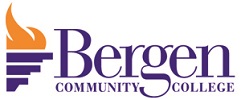Find your path to success with a diverse range of more than 120 degree, certificate, and continuing education programs.
Overview of the Clery Act
• In 1986 Jeanne Clery was raped and murdered in her Lehigh University dorm room. The attack was one of 38 violent crimes that occurred at the university in three years. Standards for campus crime reporting did not exist in 1986. Through the work of her parents, this led to legislation that was enacted to improve campus safety and security.
• Congress enacted the Crime Awareness and Campus Security Act of 1990 that amended the Higher Education Act of 1965, which requires all institutions of higher education (IHEs) participating in Title IV funding to disclose campus crime statistics for the three previous calendar years and security information in an Annual Security Report (ASR).
• The Act was amended several times, and the 1998 amendment renamed the law the Jeanne Clery Disclosure of Campus Security Policy and Campus Crime Statistics Act (Clery Act) in
memory of Jeanne Clery.
• In March 2013 the Violence Against Women Reauthorization Act (VAWA) was signed into law, which included amendments to the Clery Act. The changes require IHEs to disclose statistics, policies, and programs related to dating violence, domestic violence, sexual assault, and stalking.
• On December 24, 2024, President Biden signed into law the Stop Campus Hazing Act (SCHA), which requires IHEs to disclose in their ASRs hazing incidents reported to Campus Security Authorities (CSAs) and/or local law enforcement. The SCHA amends the Jeanne Clery Disclosure of Campus Security Policy and Campus Crime Statistics Act (Clery Act), by introducing measures to increase transparency, accountability, and prevention of hazing across IHEs, and renames the act the Jeanne Clery Campus Safety Act which is still also known as the Clery Act.
• The Clery Act imposes several requirements on IHEs which include the following:
• Publish and distribute an Annual Security Report (ASR) to all current and prospective students and employees annually by October 1st. In addition, students and employees who join the
IHE after the October 1st distribution must be provided with access to the ASR. It must include campus crime statistics for the preceding 3 calendar years, details of efforts taken to improve safety, and summaries of existing campus safety and security policies and procedures.
• For IHEs with campus police and/or a security department, maintain a Daily Crime Log of all reported crimes available for public inspection.
• Identify, designate, and train all personnel who based on their position responsibilities are considered Campus Security Authorities (CSA’s), and are required to report certain crimes.
• Issuance of Timely Warnings and Emergency Notifications:
• When a crime covered by the Clery Act occurs, campus officials are required to evaluate if there is a serious or ongoing threat to the campus community to determine if a Timely Warning needs
to be issued to all students and employees.
• In the event of an immediate significant danger to the health or safety of the campus community (e.g., severe weather condition, disease outbreak) campus officials may issue an Emergency Notification, which can be directed at the entire campus or be limited to a specific area deemed to be at risk.
• Compile statistics of crimes that occurred within the IHE’s “Clery geography” and meet the definition of “Clery crimes”. The act identifies and defines 5 distinct categories of crimes
that must be addressed in the ASR known as Clery crimes, which include criminal offenses, hate crimes, VAWA offenses, arrests & referrals for disciplinary action, and hazing incidents,
and the geographies where such crimes are committed that must be reported in the crime statistics.
TO REPORT A CRIME OR INCIDENT, PLEASE CLICK HERE.
If an incident requires an immediate Public Safety Department and/or Law Enforcement response, (e.g., crime in progress, emergency, or on-going threat to the BCC community) dial 911 or call the BCC Public Safety Department (see below numbers for each BCC campus).
Paramus Campus: 201-447-9200 (ext. 6 if using an internal BCC phone)
Meadowlands/Lyndhurst Campus: 201-301-1267 (ext. 6 if using an internal BCC phone)
Hackensack Campus: 201-301-9700 (ext. 6 if using an internal BCC phone)
